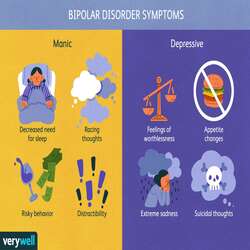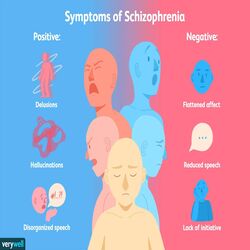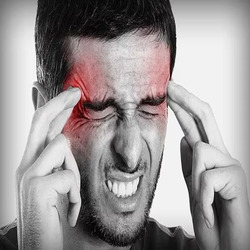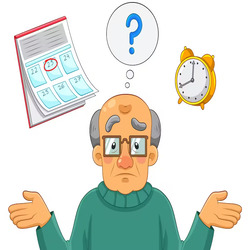NEUROPSYCHIATRY

Clinical Depression
Clinical depression is a severe mood disorder characterized by persistent feeling of sadness, hopelessness and a lack of interest in daily activities. It often disrupts sleep, appetite and concentration, impacting daily functioning. Professional intervention, such as therapy and medication, is crucial for managing symptoms and improving overall well-being.

Anxiety Disorder
Anxiety disorder involves excessive worry, fear and apprehension, leading to physical and mental distress. Symptoms include restlessness, muscle tension and difficulty in concentrating. It can affect daily life and relationships. Treatment options include therapy, medication and lifestyle changes, offering relief and improving the quality of life for those affected.

Bipolar Disorder
Bipolar disorder is a mental health condition characterized by extreme mood swings between manic highs and depressive lows. Individuals may experience elevated energy, impulsivity and grandiosity during manic episodes, followed by periods of deep sadness and low energy. Effective management often involves mood stabilizers and psychotherapy to enhance stability and coping mechanisms.

Schizophrenia
Schizophrenia is a chronic mental disorder marked by distorted thinking, hallucinations and impaired social functioning. Individuals may struggle with reality perception, experiencing delusions and disorganized thoughts. Medication, therapy and support are crucial for symptom management, fostering a better quality of life for those affected by this complex psychiatric condition.

Obsessive Compulsive Disorder
Obsessive-Compulsive Disorder (OCD) is a mental health condition characterized by intrusive, distressing thoughts (obsessions) and repetitive behaviors or mental acts (compulsions) aimed at reducing anxiety. These rituals often interfere with daily life. Treatment involves therapy, medication or a combination to alleviate symptoms and improve overall well-being.

Headache/Migraine
Headache and migraine cause intense head pain, often accompanied by nausea, sensitivity to light and sound. Migraines may involve auras or visual disturbances. Triggers include stress, hormonal changes or certain foods. Management includes pain relievers, lifestyle adjustments and prescription medications for severe cases, providing relief and prevention.

Epilepsy/Fits
Epilepsy involves recurrent seizures due to abnormal brain activity. Seizures vary from momentary lapses to convulsions. Causes include genetic factors, brain injury or infections. Treatment typically involves antiepileptic medications to control seizures. Lifestyle modifications and support contribute to effective management, improving the quality of life for individuals with epilepsy.

Dementia
Dementia is a progressive cognitive decline affecting memory, reasoning and daily functioning. Common types include Alzheimer’s disease and vascular dementia. Symptoms include forgetfulness, confusion and impaired judgment. While there is no cure, support, medications and therapy can alleviate symptoms, enhancing the well-being of individuals and their caregivers facing this challenging condition.

Alzheimer's Disease
Alzheimer’s disease is a degenerative brain disorder causing memory loss, cognitive decline and behavioral changes. It results from the accumulation of amyloid plaques and tau tangles in the brain. Currently incurable, treatment focuses on managing symptoms through medications and support, aiming to enhance the quality of life for individuals affected by this devastating condition.

Hysteria
Hysteria, a Victorian era diagnosis, was often used to describe emotionally charged behaviour that seems excessive and out of control. It was used predominantly for females. Though hysteria term is still in day to day practice, in 1980, it was removed from medical terminology and instead people suffering from similar symptoms, are now classified in dissociative and or somatic disorder.

Child & Adolescent Problems
Child and adolescent problems encompass a range of issues like behavioral disorders, addiction, anxiety and academic challenges. Early intervention through counseling, family support and educational resources is crucial. Addressing these problems promotes healthy development, emotional well-being and equips young individuals with coping skills for a successful future.

Violent Behaviour in Kids and Adults
Violent behaviour in both children and adults may result from various factors such as trauma, mental health issues or environmental influences. Early intervention, counselling and community support are essential for addressing the root cause, promoting non-violent coping mechanism and fostering a safer, more resilient society.

Personality Disorders
Personality disorders involve enduring patterns of behavior, cognition and inner experience that deviate from cultural norms. Examples include borderline, narcissistic and obsessive-compulsive personality disorders. Treatment often involves therapy to address maladaptive patterns, improving interpersonal relationships and overall well-being for those affected.

Sleep Disorders
Sleep disorders encompass conditions like insomnia, sleep apnea, restless legs syndrome and disrupting normal sleep patterns. Causes range from stress to medical conditions. Diagnosis involves sleep studies and monitoring. Treatment includes lifestyle changes, therapy and in some cases, medication to promote restful sleep and improve overall health.
